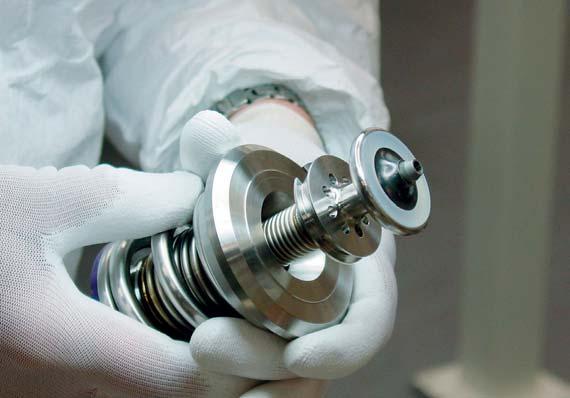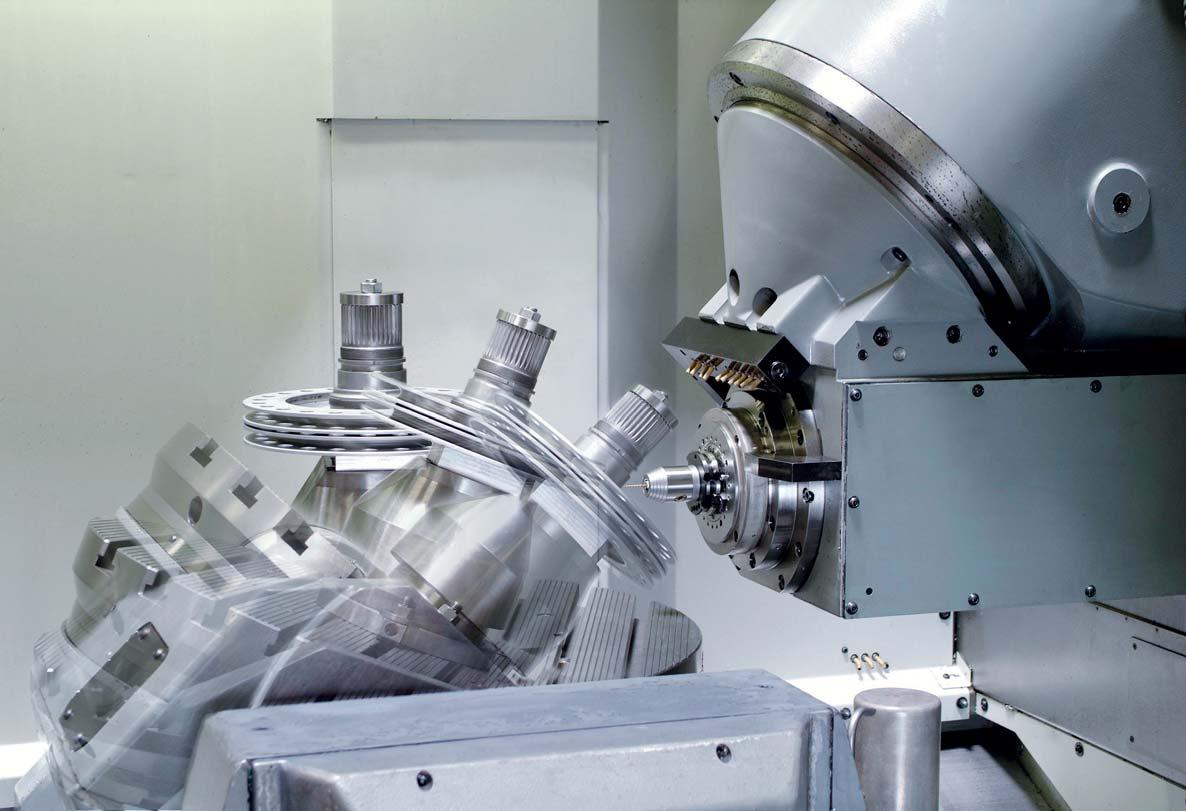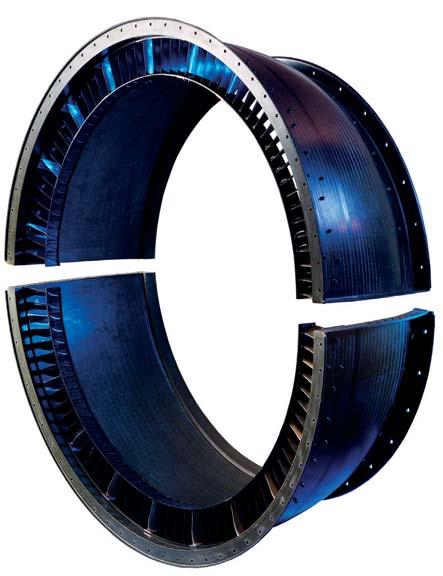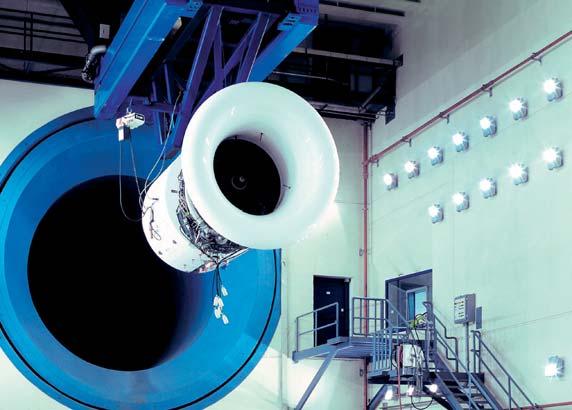
13 minute read
175
by 5rXobdlLrFp
Skywin: Collaborative innovation and operational excellence
© Skywin
Advertisement
An interview with Mr Etienne POURBAIX, Director of the Skywin competitiveness cluster
Can you tell us about the Skywin cluster’s goals and strategy? As with all of the business clusters in Wallonia, Skywin’s goal is to bring together all of the players in industry, research and training in our sector, aerospace. Since 2018 Skywin has been promoting a new concept of sectors in all its communication. These sectors are five in number: Aero, Spatial, Drone, Defense and Engineering. The cluster also runs both of our project tenders every year in terms of R&D, training and investment. Additionally, we are active on an international level, where we can hone our aerospace expertise in other countries, take part in trade shows with AWEX, promote B2B meetings and develop partnerships with international consortiums. Finally, Skywin works to defend the interests of the Walloon aerospace sector when dealing with the ESA and the Ministry of Defence in particular.
Created from the bottom up with our members in 2006 and rebuilt in 2013, our strategy is based around 6 key axes: composite materials and industrial processes, metallic alloys and industrial processes, on-board systems, airport services, space systems and applications, modelling and simulation. Besides, the “drone” component was added in 2016 to two of these 6 axes: “on-board systems” and “space and drone systems”. Here we focus on the integration of particular sensors on drones and the development of data processing systems in order to make the most of the obvious synergy between space and drone applications. As you can see, our strategy can adapt to new challenges and incorporate current technological developments.
Can you run us through a few examples of innovative and collaborative projects approved by the cluster? Out of the 50 R&D projects approved for the 24 project tenders, I would choose two of them: the ACP (for aircraft and composites, see text box 1) and ACTIO. Approved during the project tender in 2009, ACTIO is headed by Deltatec, a SME, in partnership with 2 other industrial groups (AMOS, Spacebel) and 2 research organisations (Ulg-CSL and UCL) for a total budget of €3 million. The objective of the ACTIO project is to respond to the evolution of observation instruments towards more commercial environments by addressing two areas of research: increase the spatial resolution of the instruments while keeping them in microsatellites; and develop economically attractive solutions, applicable to many commercial spatial RFI.
Specifically, the project aims at: determining a bold and unprecedented mechanical solution to enable a microsatellite PROBA-type to host a optical observation instrument with high resolution; providing solutions to the difficult issues of selecting a component-based instrument adapted to globalized business environments; studying the components of instruments optimized in terms of price and performance, specifically targeting optical mirrors and electronics; validating all components of the instrument for a high resolution extension. The purpose of the project is to develop components and know-how needed to produce reliable and efficient compact instruments of observation, and thus propose to the market a very compact and innovative observation instrument.
Additionally, two innovative collaboration projects focusing on the development of tools and methods for aerospace additive manufacturing were approved on the 2 nd of July 2015 as part of our 13 th project tender: AERO+, headed by SAFRAN Aero Boosters and FASAMA, headed by Sonaca. And let us not forget the projects submitted to the 2016 call for projects: many of them targetted additive manufacturing for aerospace applications.
Can you talk to us about your training activities? Since it was founded, Skywin has provided more than 200,000 hours of training. In the first phase, the cluster approved several
Skywin in facts and figures
- 166 members, including around 133 industrial members (more than 116 small to mid-sized businesses). This covers 95% of the Walloon aerospace sector, and thirty research and formation organisations,
- A cumulative turnover of €1.75 billion (80% in aeronautics and 20% in space),
- 7,500 direct industrial employees,
- 80 approved projects (50 in R&D, 20 in investment, 10 in training) for a budget of €250 million (€156 million of which coming from public funding).
Productivity and excellence in terms of aeronautical component manufacture are key factors which enable Walloon SMEs to take their place on the world stage.

training projects which were directly linked to R&D projects. This was especially true for a project currently near completion which was connected to the ACP project: designed for technicians and engineers, it covered the use of digital modelling tools for composite materials.
Following the overhaul of our strategy in 2013, Skywin opted for a different approach: going directly to see the 20 most active members and assessing their training requirements with them. This approach was implemented in collaboration with our training partner WAN (Wallonia Aerotraining Network), and concluded with the development of CAMPUSS, a framework project with a budget of more than €4 million.
CAMPUSS can be broken down into 3 key areas: hard skills (training engineers to use new simulation tools – CAD); operational excellence (to improve production competitiveness) and soft skills, much in demand from our members (project and team management, negotiation with partners and suppliers, stress management, etc.). CAMPUSS was launched in 2014 for 4 years with a management committee including ten industrial establishments. Arrived mid-term, this great example of Skywin’s bottom-up approach will now focus more specifically on SMEs and the 4.0 industry, the impact of which will be huge on industrial processes and training. That is why Skywin will associate with other Walloon competitiveness clusters in 2017 in order to develop a training offer that will allow our regional economy to make the transition to the 4.0 industry.
We should also talk about the approval, as part of the 13 th project tender, of an excellence training project for mechanical development and assembly processes: FOREX, headed by Sonaca and WAN.
What can you tell us about the investment projects approved by the cluster? In contrast to our collaborative projects, investment projects are headed up by a single player in line with a strategic development plan. For the past eighteen months, we have seen very high demand for these investment projects. They were especially visible during our last project tender: 6 small businesses submitted an investment project. This is proof that the sector is growing and that it is reinvesting in production means (building extensions, new testing equipment acquisitions, etc.) to meet increasing demand.
The latest investment project which we approved on the 2 nd of July 2015, as part of the 13 th project tender, was the SOBINV2. This is headed by Sobelcomp, a small business active in the composite materials sector, which is growing through the acquisition of new premises. It certainly looks like small Walloon businesses believe in the future of the aeronautics and space sector!
What kind of services do you offer your members? We ensure full and permanent technological oversight, with the organisation of regular technological conferences based around specific themes. For these events, we invite guest speakers with experience in some of the finest organisations, frequently from abroad. These conferences are perfect vehicles for brainstorming, and frequently bear the fruit of ideas for collaborative projects. Next, we work to monitor how projects are started up, offering coaching services for the development and completion of a project (which often involves finding the right consortium with the right research partners). The aim is to give the project the best possible chance of being selected.
For our international activities, we are very well connected to the major aerospace clusters and aerospace regions wordwide. We participate every two years to the biggest Aerospace shows like Le Bourget (with more than 50 Walloon entities as exhibitors) and Farnborough (with approximately 5 to 10 Walloon entities as exhibitors).
This year 2018 was quite active with international missions to Singapore Airshow, ADSS Seattle, Rendez-vous Forum of Montréal and Farnborough in July, but also with the very first B2B business convention in the field of Aerospace in our own country: Aerospace Summit Brussels.
The first edition of the Aerospace Summit Brussels can be seen as a first try-out in order to offer even more international visibility to the Belgian/Walloon aerospace sector. More generally, the participation of Skywin to international missions and trade shows is always in line and coordinated with the interests of our members, in order to help them access new market segments or stabilize their current business.
We see ourselves as a focal point, an entry door, a facilitator to the Walloon competences in the aerospace sector.
Approved during our first project tender in 2007 and headed by Sonaca, the ACP research and training project (aircraft plus composite) has brought together 8 industrial partners and 7 research organisations for a total budget of €19.3 million (€15.3 million for R&D and €4 million for training). Their objective: to develop the composite materials industry in Wallonia. ACP opened the door for 10 other projects aiming at integrating composite technologies in production workshops in order to increase the efficiency of industrial processes.
This is most notably the case with Tecshpace Aero, which launched several composite material projects with applications for boosters, carters and drum components. These projects have led to products which are now on route to the market. This technological road map, which is moving closer and closer to the market, can also be used for the development of increasingly commercial and increasingly compact satellites, and for additive manufacturing in the field of metallic compounds (with 3 projects set up alongside the MecaTech cluster).

The manufacture of composite components is taking on special significance, and requires completely flawless production methods. Here is part of a composite booster, designed by Safran Aero Boosters.
I should also highlight the MACH initiative, inspired by a project launched in Quebec in 2011. Using our collaboration with the Aéro-Montréal aerospace group, we decided to create an initiative in Wallonia to support local businesses and help them increase their overall levels of quality in terms of both operational excellence and supplier-contractor relations. The principle behind this approach, jointly financed by the government of Wallonia, is simple: a major purchaser sponsors a small business, which agrees to follow an in-depth improvement plan in order to meet increasingly demanding tenders. As part of this Walloon initiative, 4 small businesses were selected in 2014. Their feedback has been very positive: on one hand, they form a privileged relationship with their sponsor, and on the other, they learn about their internal organisational problems which they can then work to overcome. The MACH initiative was relaunched late 2015 to form a second cohort: 4 SMEs have joined the initiative and 2 of the first 4 selected SMEs decided to start a new coaching process. For the first time, non Walloon purchasers volunteered to coach the Walloon SMEs. That speaks volumes about the MACH initiative’s increasing visibility.
Additionally, the cluster organises an annual series of small seminars with high-profile guest speakers (Boeing, Airbus…), who present the strategic future of their company in front of an audience of industrial professionals. These events enable our members to strengthen their networks and benefit from highflying training programmes. Lastly, Skywin represents Walloon industrial companies to improve cooperation in the field of military activities: when a contract comes up, potential foreign suppliers have an active interest in learning about the Walloon economy. As such, they can use the cluster to learn about the sector and come into contact with Walloon industrial companies through B2B meetings. This helps Walloon companies increase their visibility.
Skywin members’ activities also include the design and construction of aircraft motor test beds.

© Courtesy of Cenco International
How are you implementing your international development policy? Skywin has signed 8 agreements with international consortiums. On a European level, the cluster is a member of the EACP (European Aerospace Cluster Partnership), a place to exchange good working practices, share experience gleaned from international trade fairs and much more. The EACP also plays a role in the representation of its members in smaller trade fairs where they may not wish to make an appearance. Moreover, the EACP has at its disposal teams working on governance problems, economic and technical problems, technological development strategies and other issues. Furthermore, they provide a discussion platform for the constitution of consortiums with the aim of participating in European projects (Horizon 2020, CleanSky).
The Skywin cluster has also entered into bilateral partnerships. This is the case with our French counterpart, Aerospace Valley, based in Toulouse. The final objective of this partnership is to implement joint projects to fulfil project tenders in both Wallonia and France. I should mention that since the end of 2014, the Walloon Government has opened up project tenders to nonWalloon industrial and academic partners. Thanks to this, we predict a number of beneficial and innovative research collaborations. For instance, Skywin and Aerospace Valley are taking part in the European project “Abroad”: the aim of this project is to help SMEs to develop largest export activities, i.e. beyond European boundaries. In this prospect, a number of countries has been selected (Brasil, Japan, the American West Coast, Mexico) and each member of the project was assigned one of the target countries in order to organize a prospecting mission before taking European SMEs on site. Skywin was assigned Brasil: we have performed a prospecting mission early in 2017 and returned with SMEs at the end of 2017.
Similarly, Skywin has started to collaborate with the other French competitiveness cluster, ASTech Paris Region. The vicepresident of ASTech is also a member of our project selection jury… but of course, is sworn to confidentiality!
Quebec also plays a part in our international development project. I’ve already talked about Aéro-Montréal, but they are not our only local partner: we’ve also signed an agreement with CRIAQ (the aerospace research and innovation consortium in Quebec).
The members of the Skywin cluster make a significant contribution to various programmes led by Airbus. Here, a “Lower Shell” can be seen under a large piece of A380 fuselage, produced by SABCA in Brussels.

And if you’re not worried about going a little further afield, we’ve also signed a contract with the SIATI, a group of Indian aeronautics companies. As such, we have organised visits for Walloon industrial partners in India, we’ve participated in the Aero India trade show and invited Indian industrial groups to visit Wallonia… while we wait for more tangible results. We apply the same patience in our collaboration with the Samara region in Russia – a collaboration which is difficult to get back on track, given the current political climate. However, our cluster is ready and waiting for business to resume between the European Union and Russia.
In short, the cluster is striving to maintain and cultivate our various collaborative projects, even if they don’t always bear fruit immediately. Setting up partnerships abroad is just the first step, but we’re just facilitators after all!
For you, what are the major issues yet to come in terms of research and training in the aerospace industry? Our sector is facing the advent of the 4.0 industry at all levels of the supply chain: the ongoing digitalisation is blurring the boundary between the design office and the production floor. Engineers and workers will have to learn to work together more than ever before. This is also true for aspects related to maintenance.
A genuine cultural change is underway and Skywin is ready to play its part to help its members cope with it. The greatest challenge will undoubtedly be to raise SMEs’ awareness of this evolution: if they don’t jump on the bandwagon they will ultimately be thrown out of the supply chain.
Another major issue is the acceleration of our production rate: Airbus has imposed a near doubling rate in 3 years, forcing production units to speed up while maintaining their technological skills. That is why there were so many investment projects submitted in 2015: production capacity had to be increased rapidly. The entire supply chain is affected by this trend: everyone will have to maintain full operational excellence and implement production improvements across the board – while remaining competitive, of course.










